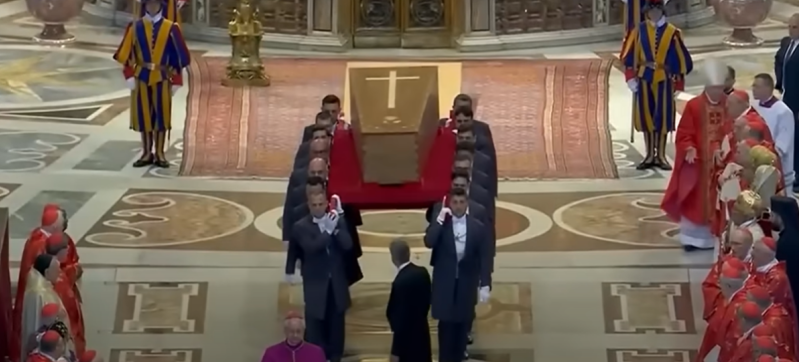
In a recent statement, the Islamic State (ISIS) condemned the funeral of Pope Francis, describing it as a calculated marketing maneuver in what they call an ongoing theological war.
According to CP, ISIS issued its criticism through its weekly newsletter Al-Naba, accusing Western Christianity of using the Pope's burial ceremony to subtly undermine the Islamic faith. The group alleged that the Pope's choice of a modest funeral—marked by a simple iron cross instead of gold and an unadorned grave—was not an act of humility but a deliberate image management strategy designed to appeal to Muslim audiences and dilute their religious convictions.
ISIS further criticized the favorable reactions from prominent Islamic figures and media outlets. Specifically, the group condemned Al-Azhar’s Grand Imam and several Arab media platforms for offering condolences and expressing admiration for Pope Francis. ISIS argued that such gestures confuse Muslim communities, framing them as part of a broader "soft war" aiming to erode Islamic identity.
Moreover, the group interpreted Pope Francis' calls for peace in Gaza not as genuine acts of compassion but as tactical moves intended to project a humanitarian image and strengthen Western influence in Muslim-majority regions.
According to CP, security experts are increasingly concerned about the resurgence of ISIS influence, particularly in Syria. Thousands of ISIS-affiliated detainees and their families remain in camps across northeastern Syria, raising fears that mass escapes could revitalize the group’s operational and propaganda capabilities.
Analysts warn that if conditions in these detention facilities deteriorate, it could give rise to a new generation of extremists, further complicating regional stability efforts.
The controversy surrounding Pope Francis' funeral highlights how religious ceremonies, even those rooted in personal humility, can become entangled in broader ideological conflicts in today’s volatile global landscape.







